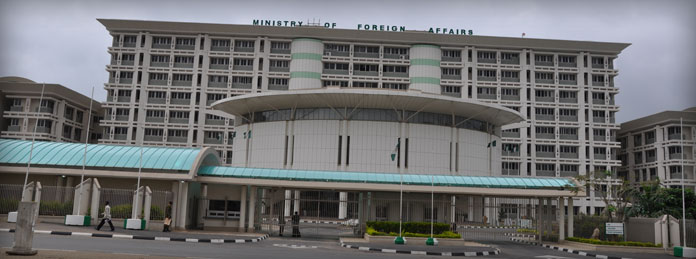Nigerian ambassadors are official envoys, the highest ranking diplomats who represent the country and are usually accredited to another sovereign country/state, or to an international organization as resident representatives of the government or sovereign or appointed for a special and often temporary diplomatic assignment.

President Muhammadu Buhari since becoming the President of Nigeria can arguably be regarded as the Chief Diplomat of the country – personally undertaking numerous diplomatic trips, foreign engagements and reaching various international agreements. His personal commitment and drive internationally (relying on career diplomats as advisers), made little substance of the country having no nominated, screened and confirmed ambassadors for over 15 months.
Eventually, the Nigerian Senate on the 15th of November 2016, approved the nomination of 47 career diplomats by President Buhari as ambassadors of the Federal Republic of Nigeria and rejected the nomination of 46 non-career diplomats. This rejection was based on grounds of inequality in representation of the Federal Character, doubts on the patriotism and competence of some of the nominees (as some of the nominees could not recite the National Anthem and Pledge during their screening), amongst others.
Considering the crucial importance of the roles of Nigerian ambassadors, it is important to briefly inspect the differences between career (professional) and non-career diplomats (political appointee) in ensuring that Nigeria’s interests abroad are ably represented. Career diplomats who attain the rank of either an ambassador or deputy chief of mission are almost all very good as they understand and can interprete the workings or fundamentals of diplomacy; experienced in managing embassies and diplomatic missions; when appropriately assigned to their host countries, are good ‘interpreters’ of the language, culture, and power relationships within it. On the other hand, non-career diplomats are relied upon based on their remarkable experience, knowledge and capacity to exert their influence in attaining national objectives/goals (depending on the issues at hand).
Therefore, from your observations, experiences, insights and understanding of the management of Nigeria’s foreign diplomatic relations abroad, do you believe we should have as Nigerian ambassadors only career (professional) OR non-career diplomats (political appointee) OR both?
This is a highly relevant piece and it poses a question that very relevant across almost every aspect of the Nigerian public service structure. Instead of outrightly rewarding political faithful with appointment without a proper critique of “who should be appointed into which position”. In any (and for this case only), I voted both. And this is why: both classes of individuals have complementary skills set that needs to be harness within the diplomatic space. Much of the western world recognize this and this is partly why the International Development Partners always have a mix of technical and non technical personnel on their team. A balance is almost always useful.
Thank you very much for your contribution and vote!
I voted “both” and my reason is that academic qualifications are not always certain (as effective as expected). Natural instincts on decision matters and experience in other fields aside that of diplomatic practice(s) are also very essential. Both career and non-career diplomats MUST work together in other to achieve maximum result for the betterment of the country which they represent.
Thanks a lot for your contribution and vote!
Totally agree with this opinion.